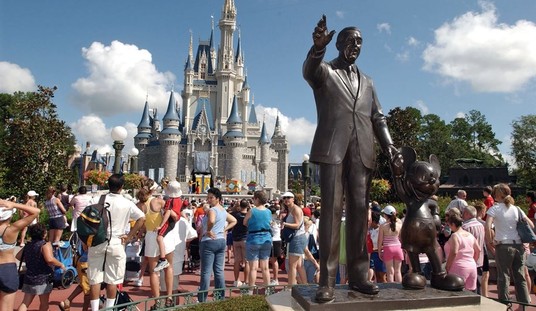A Grab-and-Go Future
This incident could happen at any Walgreens in San Francisco: A man strolls into the store walks over to the hair display, grabs an armful of shampoo bottles, and simply walks out the door. He felt no need to rush, had no fear, and didn't bother looking back.
Instead of actually doing something, people stood by and recorded the scene on their phones, shaking their heads; they knew nothing would happen, as he'd simply disappear into the crowd. There's no point in calling the police; they wouldn't come, store clerks wouldn't bother, and the DA wouldn't prosecute.
In California, petty thefts valued at less than $950 are typically not worth the paperwork involved.
It's this future that mayoral candidate Zohran Mamdani is dangling in front of New York City.
California’s Lesson
New Yorkers need to look west before being seduced by Mamdani's pitch to abolish misdemeanors, because California illustrates a picture-perfect example of what could go wrong.
Proposition 47 reclassified a wide range of felonies after passing in 2014 and increased the threshold for felony theft to $950. It was sold as reform on paper, yet in reality, it became an invitation to corruption. As long as their haul fell under the magic dollar amount, shoplifters learned there was little to fear. Over time, police grew unwilling to waste their time with cases the courts wouldn't touch.
Fallout was swift: Retail theft spiked, while stores closed. The chains Walgreens and Target took action: Walgreensabandoned entire neighborhoods, and Target locked items behind plastic.
Residents paid the price every day. Earning the nickname "the shoplifter's charter," Prop 47 overlooked the fact that people weren't simply clever slogans; they were commuters, small business owners, and single parents working hard to keep their communities together.
San Francisco’s Warning
San Francisco, always a bastion of progressive experiments, doubled down by voting Chesa Boudin into the position of district attorney in 2019. Like a good progressive soldier, Boudin followed the script by not prosecuting most low-level crimes, and became an advocate for restorative justice over accountability.
Before long, residents woke up to find shattered car windows, thriving open-air drug markets, and hollowed-out neighborhoods. The once-booming downtown slowly transformed into a brick-and-mortar desert, not only because of COVID-19's mandates and remote working, but also because nobody wanted to shop or work where crime ran rampant.
The embrace voters gave the reform ultimately faded. Boudin was recalled in 2022, a stunning rejection in one of America's bluest cities. The people of San Francisco had grown tired of being test subjects in social experiments that worked wonderfully in academia but failed utterly in the real world.
Now It’s New York’s Turn
Mamdani is a Democratic Socialist assemblyman from Queens. He isn't talking about softening penalties; he's talking about eliminating misdemeanor enforcement.
Period.
Stop me if you've heard this before. This action means shoplifting, petty theft, drug possession, prostitution, low-level assault, and even some incidents of drunk driving no longer draw consequences, unless there is "major" injury or violence.
Mamdani isn't proposing leniency; he's surrendering a city.
"E-ZPass for criminals" is the moniker critics have slapped on it, and they're right. New York already is at war, battling crime in the subway, illegal vending, homelessness, and drug abuse. When misdemeanor guardrails are stripped away, the floodgates are turned wide open.
If California is the cautionary tale, then San Francisco is the warning flare, showing that ignoring "small" crimes leads to a forest fire.
Victims in the Shadows
When progressives speak about justice in the abstract, advocating for reducing incarceration, breaking the cycle of poverty, and reallocating police resources, they ignore who's left behind.
The man who owns the corner store, the one that has been in the family for decades, files for bankruptcy because the products that walk out the door have run him out of business.
The mother dealing with smashed car windows twice in a month isn't chalking the chunks of glass in her backseat up to systemic reform: She's afraid to keep living in the neighborhood she's called home her entire life.
Because lawmakers treat crime victims as nothing more than an afterthought, crime stops being a statistic and starts to measure how much ordinary people endure before leaving.
I'm not writing fiction; that's precisely what happened in San Francisco, and it's what's in front of New York.
History Never Sleeps
The pendulum of history never stops swinging. The "tough on crime" period of the 1970s was a response to the rising crime rates. Rudy Giuliani demonstrated how enforcing minor violations, as part of his "broken windows" strategy in the 1990s, could reduce serious crime.
Progressives like Mamdani are relying on our ignorance of history by swinging the pendulum back towards indulgence. California believed it turned a page towards justice, but instead it repeated past mistakes.
Final Thoughts
There's no need for New Yorkers to imagine the results of Mamdani's plan; they exist in recent Californian headlines, which can be found with a simple online search.
Proposition 47 completely gutted deterrence when San Francisco adopted leniency. Both share the point that when the state refuses to enforce the small rules, the big rules will collapse.
If Mamdani wins, New York will be crawling on a trail of broken glass from broken windows on the streets of California.
If you want honest reporting and bold commentary that takes the fight to failed policies, PJ Media delivers what the mainstream press won’t. Join us today and help keep these debates grounded in reality, not utopia.










Join the conversation as a VIP Member